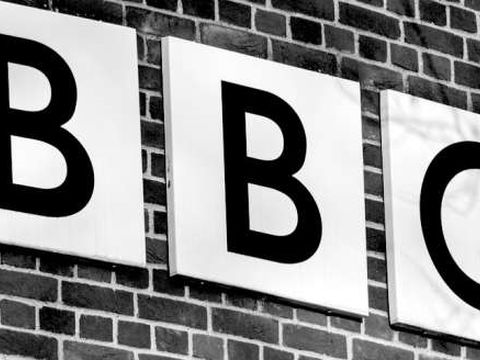



RECENTLY I wrote in The Conservative Woman about the anger caused by the BBC’s shameless pushing of gender ideology at our kids, many more examples of which can be found in this must-read article.
My focus was on one BBC Bitesize article. Bitesize is the BBC’s educational arm, aimed at children. In a piece entitled ‘How to be an ally to friends who’ve changed their pronouns’, Bitesize tells our kids that ‘Non-binary is an umbrella term for people who don’t fit comfortably into “male” or “female” categories’. The article suggests kids should be using pronouns beguilingly described as ‘modern’. These include: Ne (Ne/nem/nir) Ve (Ve/vis/vir) Ze (Ze/zem/zir). And a set of pronouns known as ‘spivak’ (ey, em, eir).
Bitesize perniciously presents modes of behaviour recently dreamt up by gender ideologues as an everyday matter. For example, it says: ‘If your classmate has come out to you as non-binary or put it on their social media bios, you could check if they’re happy to provide an example of their pronouns so you can understand how to use them.’
It suggests these interactions to school children: ‘I noticed you have “x-e” on your profile and I want to make sure I am pronouncing that right’. ‘I heard you say you’re now using “ze/zir” pronouns and I want to make sure I’m using them correctly. Can you give me an example in a sentence?’
Seriously, why?
Why does the BBC want to push gender ideology and gender confusion at our children? It has no backing in science. Many people regard it as deeply harmful. We know that if young people are encouraged to regard their so-called inner gender identity as more important than biological sex, a small number will set off down a medical path with unknown health consequences. Of teenagers who end up on puberty blockers, many proceed to cross-sex hormones. They risk their sex organs never fully developing. They risk sterility. They risk the dysfunction of normal sexual activity. Please let all this sink in.
Scott Newgent, a woman who has transitioned to a masculine identity and appearance, has written eloquently about the reality of transition. Newgent writes: ‘Anyone going through this is in store for a brutal process. Yet we now have thousands of naïve parents walking their children into gender-treatment centres, often based on internet-peddled narratives that present the transition experience through a gauzy rainbow lens. Many transition therapies are still in an experimental phase – as you will learn if you become sick during or after these treatments.’
Here is what your kids might be in for if they take to heart the BBC’s cheerful narrative: ‘During my own transition, I had seven surgeries. I also had a massive pulmonary embolism, a helicopter life-flight ride, an emergency ambulance ride, a stress-induced heart attack, sepsis, a 17-month recurring infection due to using the wrong skin during a (failed) phalloplasty, 16 rounds of antibiotics, three weeks of daily IV antibiotics, the loss of all my hair, (only partially successful) arm reconstructive surgery, permanent lung and heart damage, a cut bladder, insomnia-induced hallucinations – oh and frequent loss of consciousness due to pain from the hair on the inside of my urethra’.
Please read the whole article.
I complained to the BBC about Bitesize’s article. I suspect I wasn’t the only one. The response I got revealed the complaints team to be as captured by gender ideology as Bitesize. It seems as if they are having a laugh. Paid for by us. As they endanger our kids. I’ve reproduced the entire response below.
According to Complaints, the material Bitesize used was factual. How was it? It was based on research, they say. How? This is like saying that if a small group of people invent a new religion, Bitesize will present it to school kids as ‘one of the world’s religions’.
Bitesize quotes Stonewall as the source of its pronoun material. Yet with having-a-laugh-at-me seriousness, the Complaints reply quotes the Department for Education’s recent guidance making it clear that schools must not promote ‘partisan political views’. It also tells me that the BBC does not ‘promote or endorse the views of campaigning organisations’. What? But? Stonewall? Gender ideology? Ze/zem/zir? Ey/em/eir?
‘On occasion – as we have with Stonewall on this article – we have worked with experts to ensure that our content is factually accurate’.
So as not to appear ‘partial’, the Complaints team inform me they have instructed Bitesize to link to another LGBT charity, Just Like Us. The chief executive of Just Like Us most recently worked at, guess where, Stonewall.
That is the BBC complaints team’s idea of impartiality. Stonewall – or ex-Stonewall. Gender ideology – or gender ideology.
My friends and family continue to like parts of the BBC. We are reluctant to let it go. But at a certain point, surely, the moral obligation flips. When the content of the BBC harms, when the Complaints team mocks, is the moral imperative to stop paying?
Dear Ms ffiske
Thank you for getting in touch with your comments about the BBC Bitesize Support article, ‘How to be an ally to friends who’ve changed their pronouns’.
Relationships and Sexual Education (RSE) are an important part of the curriculum, and the article is intended to help teachers and pupils navigate one of the more complex aspects of this topic – it is factual and based on research into the subject.
The Department for Education recently released guidance to support the teaching of RSE in schools. The guidance makes specific reference to the Public Sector Equality Duty in the Equality Act 2010. This duty, which applies to all State Schools, requires both ‘advancement of opportunity’ and ‘fostering good relations’ between persons who display protected characteristics – including both gender reassignment and sexual orientation. The DfE guidance explicitly states that ‘[they] expect all pupils to have been taught LGBT content at a timely point as part of this area of the curriculum’. The intention and substance of the article in question supports school age pupils’ understanding of these protected characteristics, and will support that fostering of good relations which is specifically noted in the DfE’s guidance.
This guidance also offers steers to teachers and schools on engaging External Agencies to support the teaching of RSE courses. Specifically, it notes that such organisations should avoid ‘promotion of partisan political views’. The BBC principle of impartiality means we take a similar approach, and we do not promote or endorse the views of campaigning organisations. On occasion – as we have with Stonewall on this article – we have worked with experts to ensure that our content is factually accurate. Nevertheless, we recognise that the sole mention of Stonewall may have given the impression of a partial perspective, and have therefore added links to other organisations with expertise in this field at the foot of the piece, which young people can access in order to seek out for further advice and guidance.
With regard to the image used on social media as part of the posts promoting the article, while the illustration was actually intended to depict a sports hall rather than a changing room, we accept that the choice of image was misjudged because it was open to misinterpretation. Staff have been reminded of the importance of selecting images with care to ensure that easy misinterpretation is avoided.
We hope this reply addresses your concerns and thank you once again for taking the time to share your feedback with us.
Best Wishes
BBC Bitesize
This article is reproduced by kind permission of Conservative Women.
The views expressed don’t necessarily reflect those of Parent Power.
